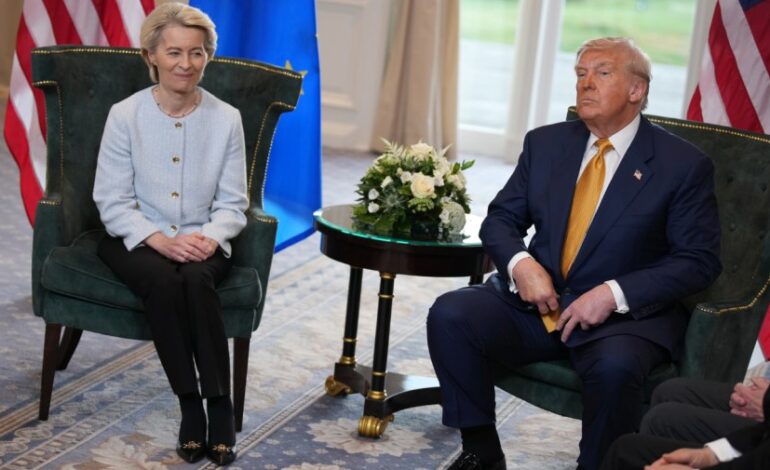Justice Department Challenges Legality of Trump’s Tariff Powers

The U.S. Justice Department is advocating for a broad interpretation of presidential authority regarding the implementation of tariffs. This development arises amidst ongoing legal debates about the legitimacy of tariffs imposed under Donald Trump’s administration, particularly those enacted during times of national emergency.
Legal experts are closely watching how the Justice Department justifies these powers, especially as the administration leans heavily on the concept of national security to defend its stance. According to a statement from the Justice Department, the government argues that the president holds significant leeway in imposing tariffs in response to perceived threats to national interests. This assertion is not without controversy, as many critics argue that such powers can undermine established trade agreements and disrupt global economic stability.
Background on Tariff Powers
The use of emergency powers to implement tariffs has been a contentious issue since Trump first invoked them in 2018. These tariffs targeted several countries, significantly impacting trade relationships. The Justice Department’s current position seeks to reinforce the notion that the president can act unilaterally in these matters without the need for congressional approval, a stance that raises questions about checks and balances in U.S. governance.
Critics highlight that the assertion of such extensive powers could set a precedent for future administrations, potentially leading to increased economic protectionism. The repercussions of these tariffs have been felt across various sectors, impacting consumers and businesses alike, with prices on imported goods rising as a result.
Impacts and Reactions
Trade experts and political analysts are divided regarding the implications of the Justice Department’s position. Some argue that empowering the president with broad tariff authority could be detrimental to international trade relations. Others contend that it is essential for safeguarding U.S. economic interests against unfair competition.
As the legal aspects of this issue continue to unfold, the ramifications for both domestic and international markets will likely be significant. The Justice Department’s push for a wider interpretation of tariff authority underscores the ongoing tension between trade policy and national security concerns.
With the backdrop of a complex trade environment, the outcome of this debate may shape U.S. economic policies for years to come. Stakeholders across various industries are keenly monitoring developments, hoping to influence the discourse around trade and tariffs as the situation evolves.






